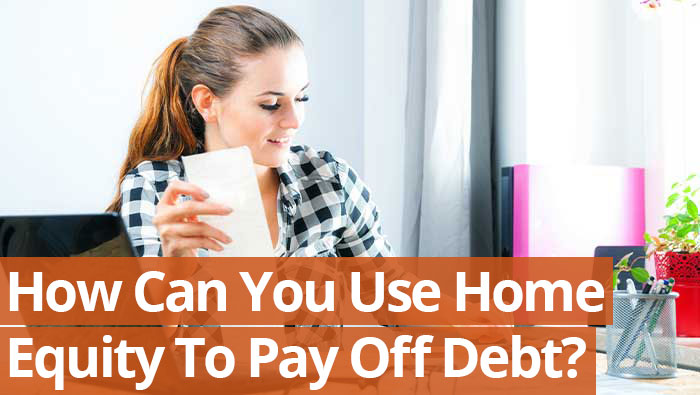A lot of people struggle with getting their debt under control. It can be all too easy to rack up credit card debt before learning the best strategies for spending and saving your hard earned money.
But even after you learn about these best practices, you may still be stuck with a mountain of debt looming over you. High-interest debt can snowball into a bigger and bigger problem, all the while harming your credit score.
If you’re like the thousands of homeowners who have invested a lot of time, energy, and money into their biggest asset, then it may be a good time to tap into your home equity and pay off your debts.
Key takeaways
- Home equity is the difference between your home’s value and what you owe on your mortgage. It can be used to pay off high-interest debt.
- Cash-out refinance allows you to refinance your mortgage for more than you owe and receive the difference in cash.
- The amount of cash you can receive depends on your home equity. This option involves closing costs and monthly payments with interest.
- Consult a mortgage professional to determine if cash-out refinance is a good option for you, and be mindful of future financial strategies to avoid accumulating more high-interest debt.
What is home equity?
Home equity is the difference between your home’s current value and the amount of money you owe on your mortgage. Building home equity is an incredibly powerful asset because it’s pretty much like putting money back into your pocket.
Here is how home equity works
Let’s say you took out a mortgage on a home that costs $200,000.
Five years later, you’ve paid off $50,000 of your mortgage. And good news, your home has risen in value to $250,000!
This means you have $100,000 worth of equity in your home!
Here’s another way to visualize that example:
$250,000 (current home value) – $150,000 (what you owe on your mortgage) = $100,000 (your home equity)
If you’ve built up equity in your home, you ought to know what you stand to gain from that equity.
For example, maybe you’ve stacked up a little too much credit card debt than you can handle. This debt could hurt your credit score and cost you extra money with high interest rates. A lot of homeowners run into this issue. Thankfully, they’re able to take cash out of their home’s equity and pay off their credit card debt.
This is called a cash-out refinance. Here’s how it works.
Cash-out refinance
This option lets you change your original mortgage into a different type of mortgage while cashing in on your home equity.
In a cash-out refinance, you refinance your current home loan for more than what you owe on your mortgage. You can receive the difference (the new loan amount minus what you owe) in cash.
Let’s use the example from earlier. You owe $150,000 on your original mortgage but now have $100,000 in home equity as leverage.
With a cash-out refinance, you could take out a different loan for $200,000 and receive a check for the difference ($50,000).
$200,000 (new loan amount) – $150,000 (what you owe on first mortgage) = $50,000 (cash out amount).
You will need to repay the new loan in monthly payments with interest, along with the closing costs of refinancing.
Unlike a Home Equity Loan (HEL), a cash-out refinance does not work like a second mortgage. With a cash-out refinance, you won’t have to cover two mortgage payments each month.
To access the cash-out option, you’ll have to build up enough equity in your home. The amount of extra money you can get from this cash-out depends on how much equity you have. The more equity you have in your home, the more money you can take out.
The bottom line
Building up equity in your home gives you major leverage for the future. If you do find yourself in a bind and need help paying off debt, then tapping into your home equity may make sense for you, especially if your debt payments have high-interest rates. A cash-out refinance may allow you to get rid of that debt and opt for lower-interest loan payments.
But keep in mind, if you decide to tap into your home equity in order to pay off debt, make sure you have a better understanding of financial strategies to prevent you from racking up more high-interest debt in the future.
If you’re interested in using your home equity to pay off debt, talk to a mortgage professional about your options. A mortgage professional can look at your unique situation and help you decide whether this is a good option for you.













